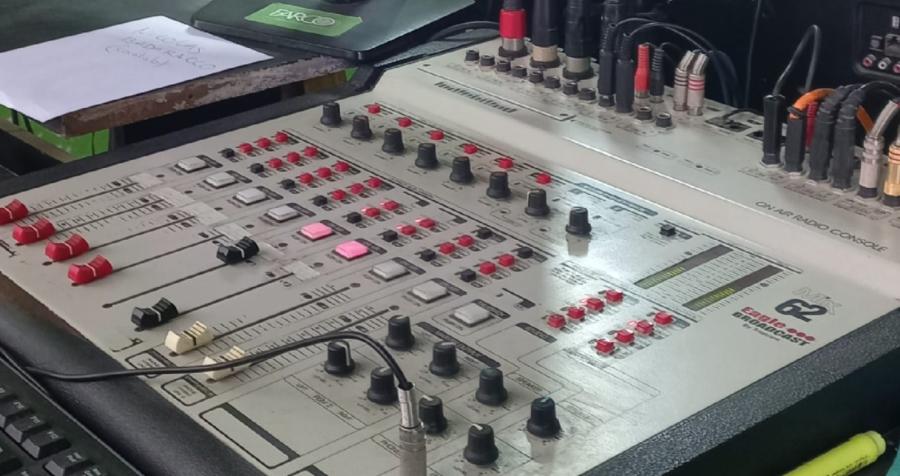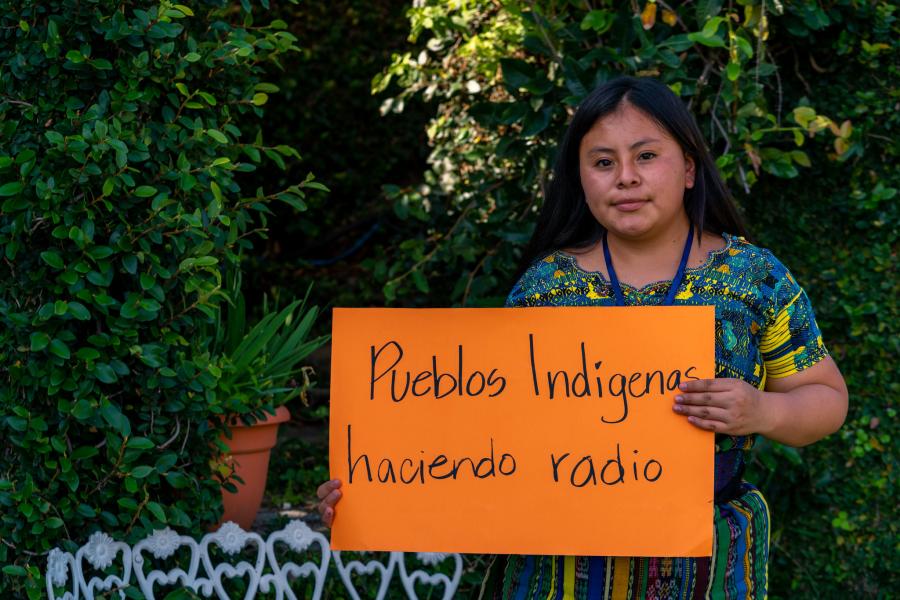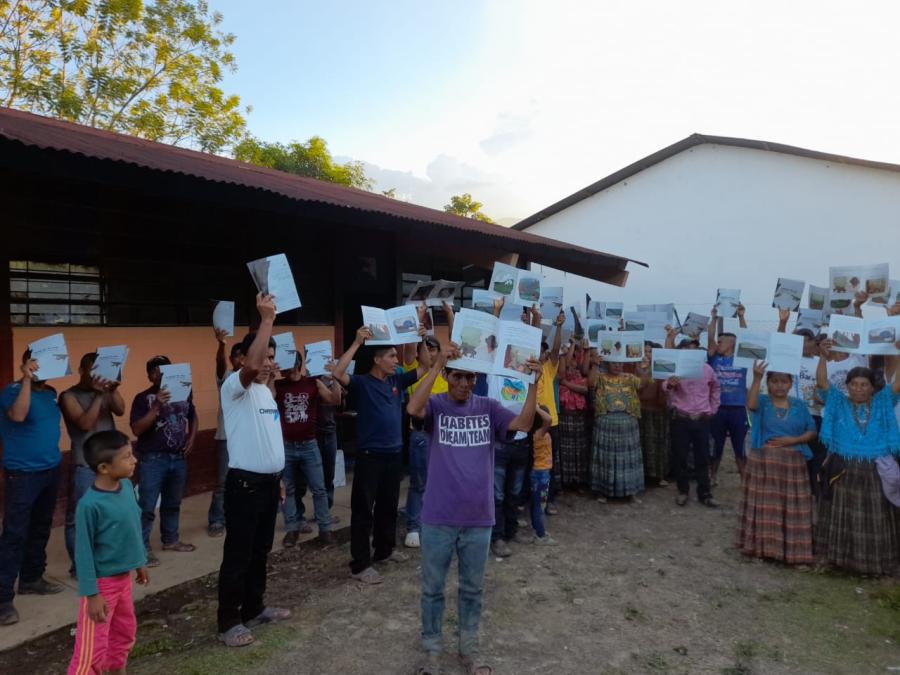
On the September 8, 2013 Cultural Survival's Community Radio team, along with a radio volunteer from Radio Ixchel, traveled across the country to visit the municipality of El Estor, Izabal, to discuss the possibility of opening a community radio. In the entire municipality of El Estor, where 85 percent of the population are Maya Q’eqchi’, there are no community radio stations. A large portion of the population only speak Q’eqchi’, and while many are bilingual, the majority of daily interactions in the region take place in Q’eqchi’.
The idea to start a community radio station in the area came from a partner organization La Defensoría Q’eqchi’, which works with Maya Q’eqchi’ communities in the Department of Izabal to defend their rights and to build solidarity between communities for their development and well-being. They approached Cultural Survival to help spread the word on how community radio can be a crucial tool in development and social organization for Indigenous communities, and help get a radio up an running.
[[{"fid":"61970","view_mode":"media_original","type":"media","attributes":{"height":1936,"width":2592,"style":"width: 400px; height: 299px; ","class":"media-element file-media-original"}}]]
Angélica Cubur, from Radio Ixchel, giving her presentation on her community radio.
The turnout of the meeting surpassed our expectations. Thirty-six community leaders showed up, almost half of who were women. We presented on the history of the community radio movement, and the importance of community radio for the promotion of Indigenous culture, community mobilization and development. Angélica, the volunteer from Radio Ixchel, presented on her community radio, including what kind of programs they broadcast, what groups they work with, how they sustain themselves as a non-profit radio, etc.
After the presentations, we provided a space for a question and answer period. This ended up lasting over an hour and a half and was the most interesting and beneficial part of the meeting. Speaking to the importance of having a medium for sharing information in their native tongue, almost all of the participants chose to speak in Q’eqchi’.
Community leaders expressed a unanimous desire to have their own community radio but were suspicious about what we meant by community radio. According to the leaders, there have been three occasions in the past when groups have come in claiming that they wished to start a community radio station. In all three cases, the radios ended up being for profit, and in the hands of one sole owner. These events caused the group to be weary of outsiders coming in and wanting to start up a “community radio station”.
The suspicions held by the group gave us the opportunity to explain exactly who we are and what we do. We were able to explain that by no means are we a group who wishes to come in and start a radio. We merely wish to provide assistance in the form of capacity building, equipment and a network of peer stations in the event that this community has the will to put in the effort to create their own station. We were able to explain that all of their fears may be put to rest because the direction in which this radio goes is entirely in their hands.
The meeting ended with enthusiastic support from all of the community leaders. We promised that we will follow up with them shortly, and provided our information so that they may contact us at any moment with any doubts or inquiries about community radio.




